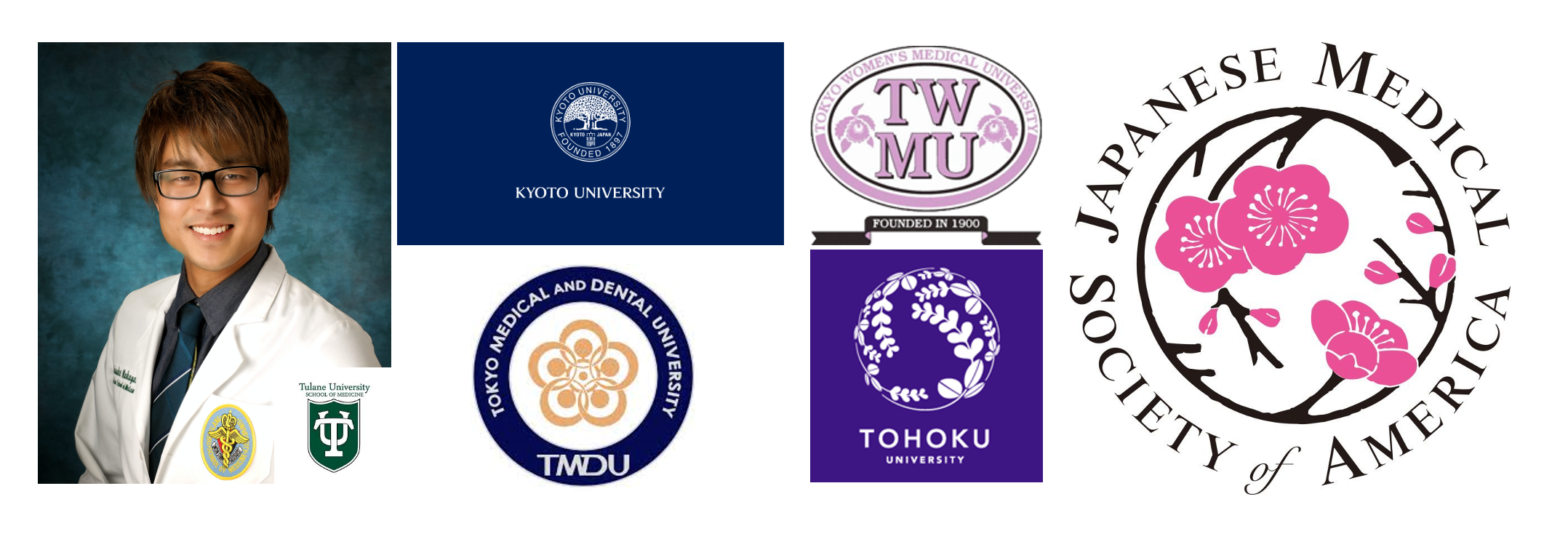Greetings JMSA Community and its members,
My name is Yusuke Nakagawa, a senior medical student at Tulane and the lead student representative at JMSA. It has been my privilege to serve Japanese American communities and pleasure to work at the JMSA. As I have completed core clerkships during my third-year medical education and finished taking all necessary board exams, I had a precious chance to fly back to Japan. With support from the JMSA and its president Dr. Yanagisawa, I was able to meet and collaborate with student doctors in Japan at the following medical schools in chronological order: Kyoto University, Tokyo Women’s Medical University, Tohoku University, and Tokyo Medial And Dental University.
As I have a different background that I completed an undergraduate engineer education in Japan, following to pursue US medical education after I experienced a year-long 3.11 disaster relief work in Miyagi, such medical schools in Japan warmly welcomed and invited me to share my experience and discuss diverse topics including: what are the differences in medical education between Japan and America, how US medical students are trained and become physicians, what medical students differ or similar with them, and how clerkships in the US were done amid COVID-19?
In addition, as I strived to have genuine discussions and heartful conversations with fellow student doctors in Japan, I presented 4 questions of food for thought:
- Why do you study Medicine? Why do you specifically want to be a physician?
- What is your course of life?
- What are unique ways of providing healing to your patient as a healer?
- What is your professionalism as a healer?
I personally believe that it is meaningful to start contemplating about aforementioned questions during medical school or even before becoming a medical student as being a physician is more than learning medicine nowadays. Medical schools are one of the unique communities comprised of people with diverse backgrounds, skills, and life experiences. As a future healthcare provider, I would like to stand out as one unique physician since not all doctors are created equal; therefore, I am in the journey of searching my ways of delivering care with compassion. Embracing who I am and constantly seeking to be only one, not number one.
With special thanks to Dr. Minami, an ICU physician at Kent Hospital and Care New England and associate professor at the Warren Alpert Medical School of Brown University, and Dr. Yamamoto, a clinical radiologist and lecturer at Kyoto University Graduate School of Medicine, Medical Education Center, I was able to visit Kyoto University onsite and attend the session in hybrid both in person and online. It was memorable for me to see Dr. Honjo’s actual laboratory and the Nobel Prize memorial monument. The medical students at Kyoto University actively participated the session and asked me a lot of profound questions, not to mention that Dr. Minami actively participated the session online despite it was 4am EST at the US. Sincere thank you to Dr. Minami, Dr. Yamamoto, JMSA, and Dr. Yanagisawa for setting up the session in a short period of time.
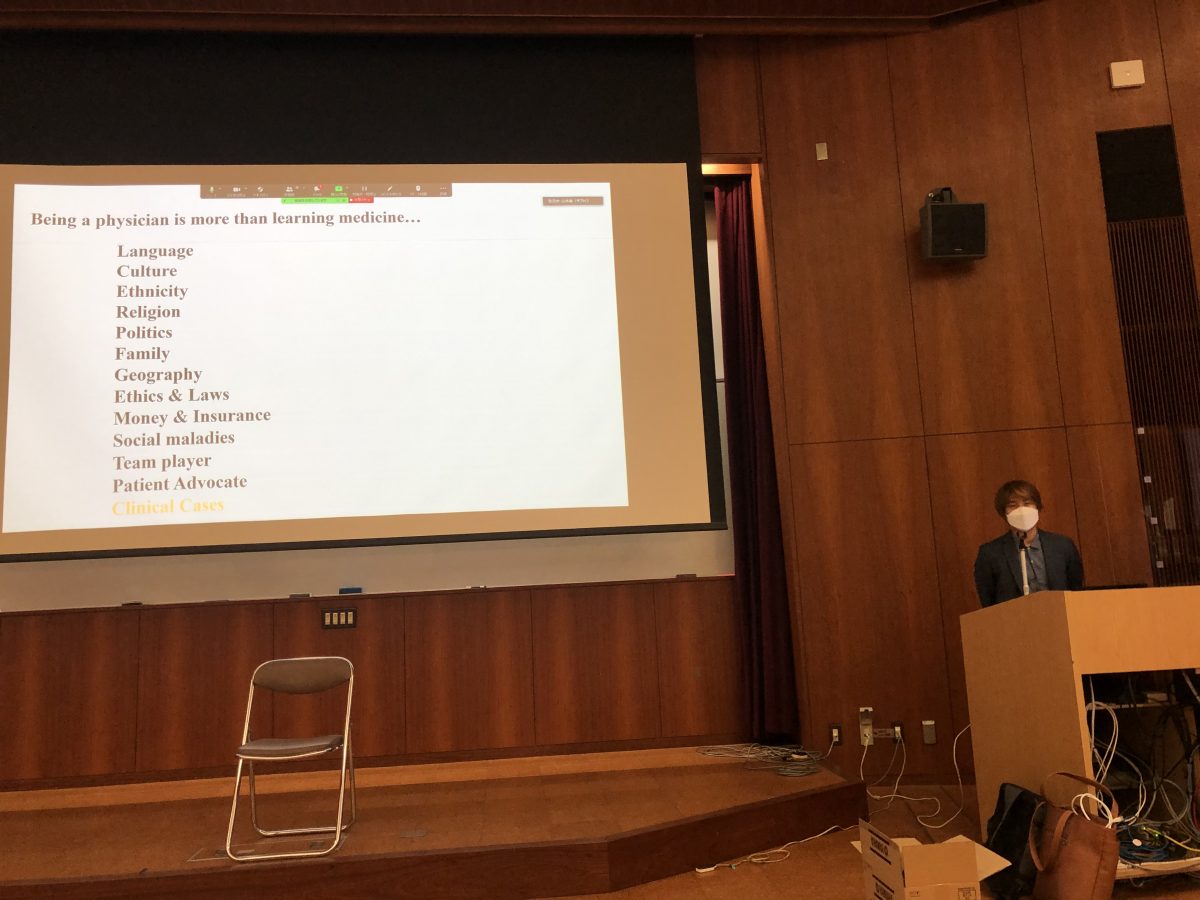
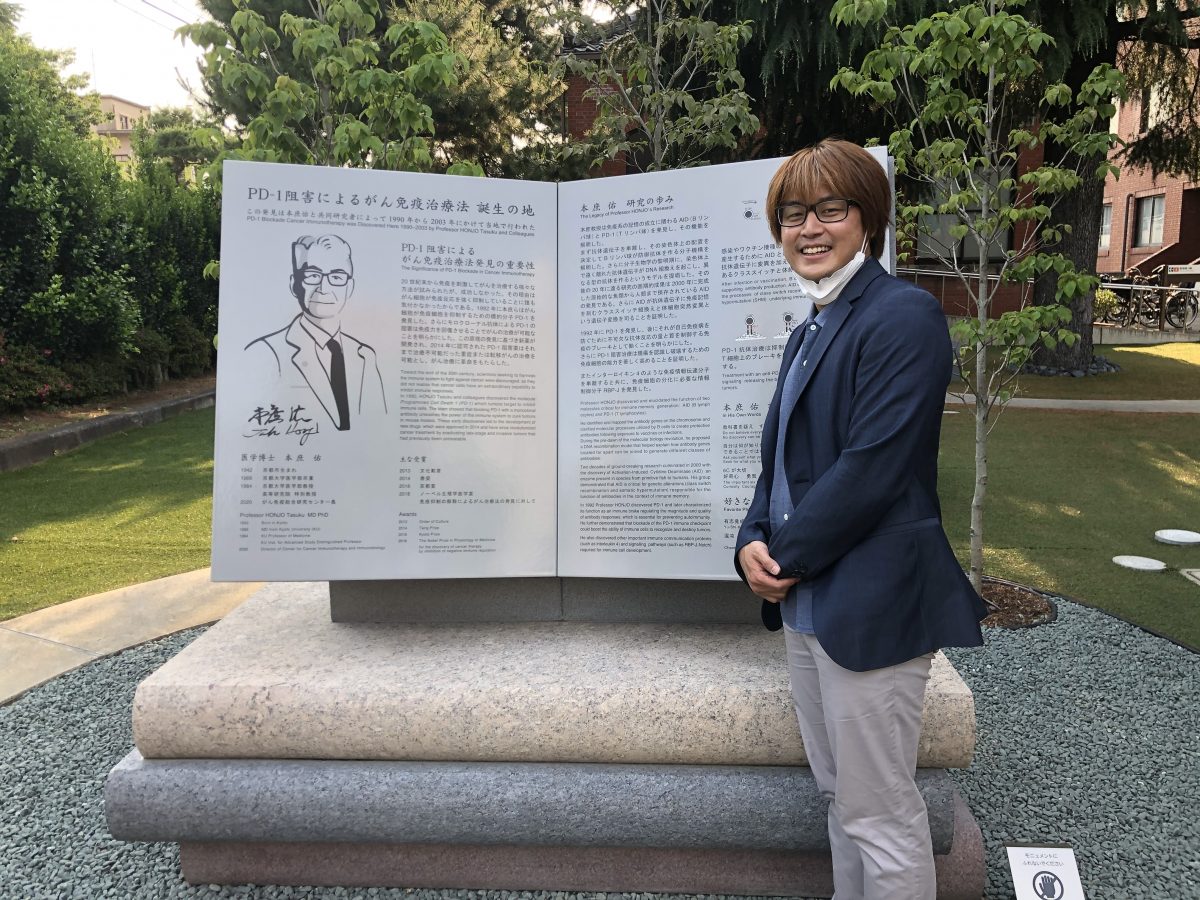
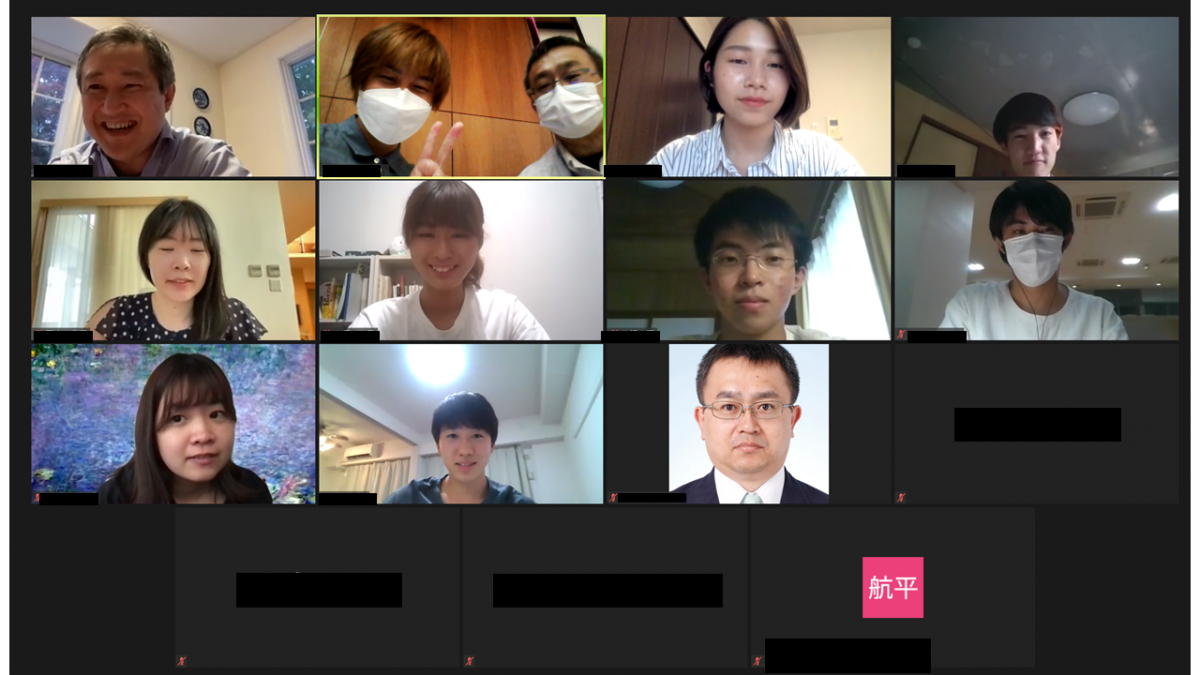
In Tokyo Women’s Medical University, I would like to say thank you to Dr. Sugishita, a professor from TWMU and Ms. Daikoku, a secretary, for welcoming me and created a wonderful poster to recruit participants! I had a great opportunity to encourage fellow student doctors and empower future female leaders in medical community since there are no sexual differences in learning medicine and leading a medical society!
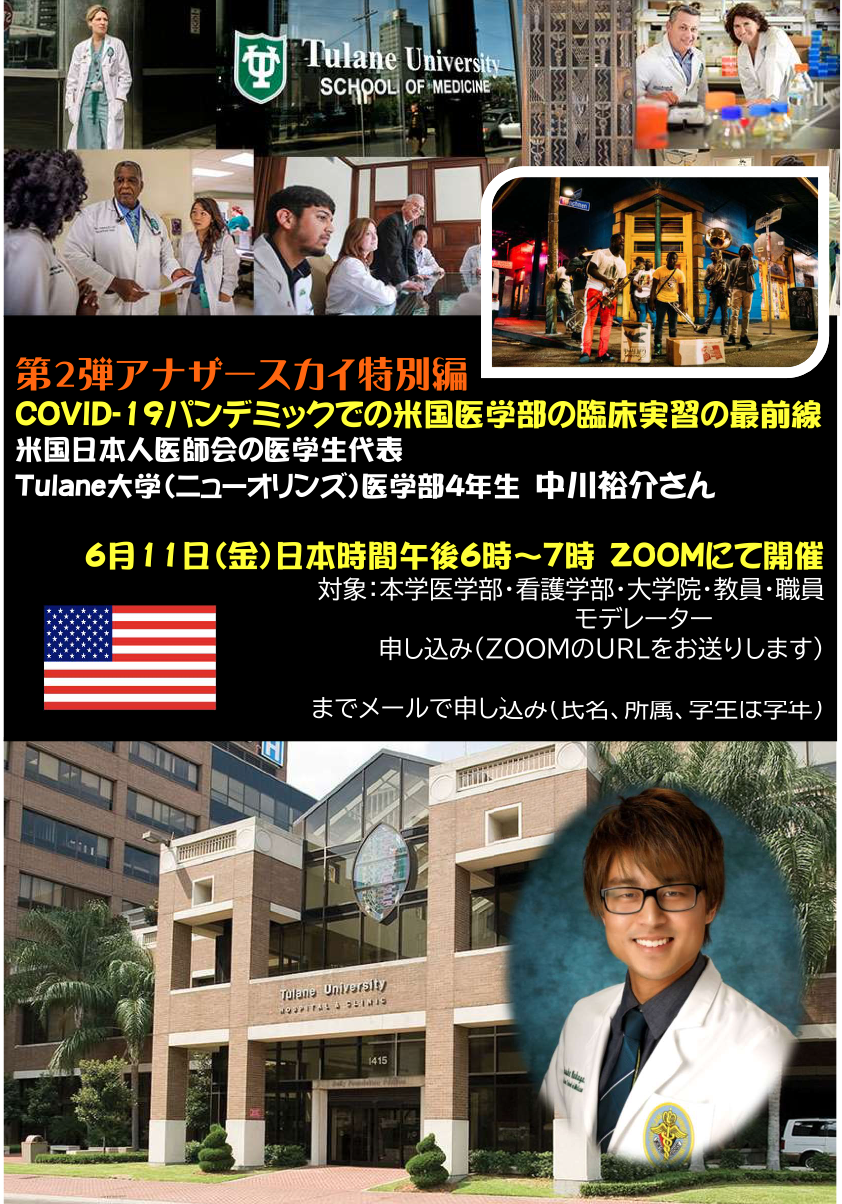
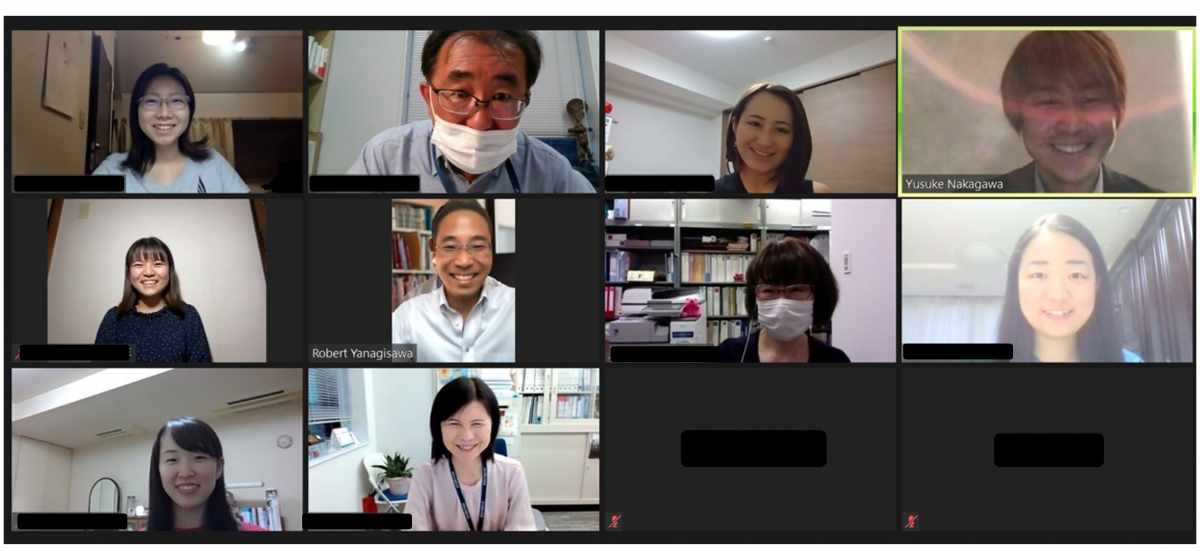
For Tohoku University, I would like to deliver my sincere appreciation to Dr. Kagaya, a president at Tohoku Bunka Gakuen University, Dr. Ishii at Tohoku University, and student members at the I Health, the student group interested in international networking. As I have participated in 3.11 disaster relief effort in Miyagi for a year, it was personal and vital for me to interact with students at Tohoku University as my experience in relief work made me change to pursue medical education from engineering. It was great experience to share opinions and have active discussions with participants at Tohoku University! I also appreciate I Health for recruiting participants not only from medical students, but also students from welfare and other relevant medical fields. 頑張れ東北!頑張れ日本!
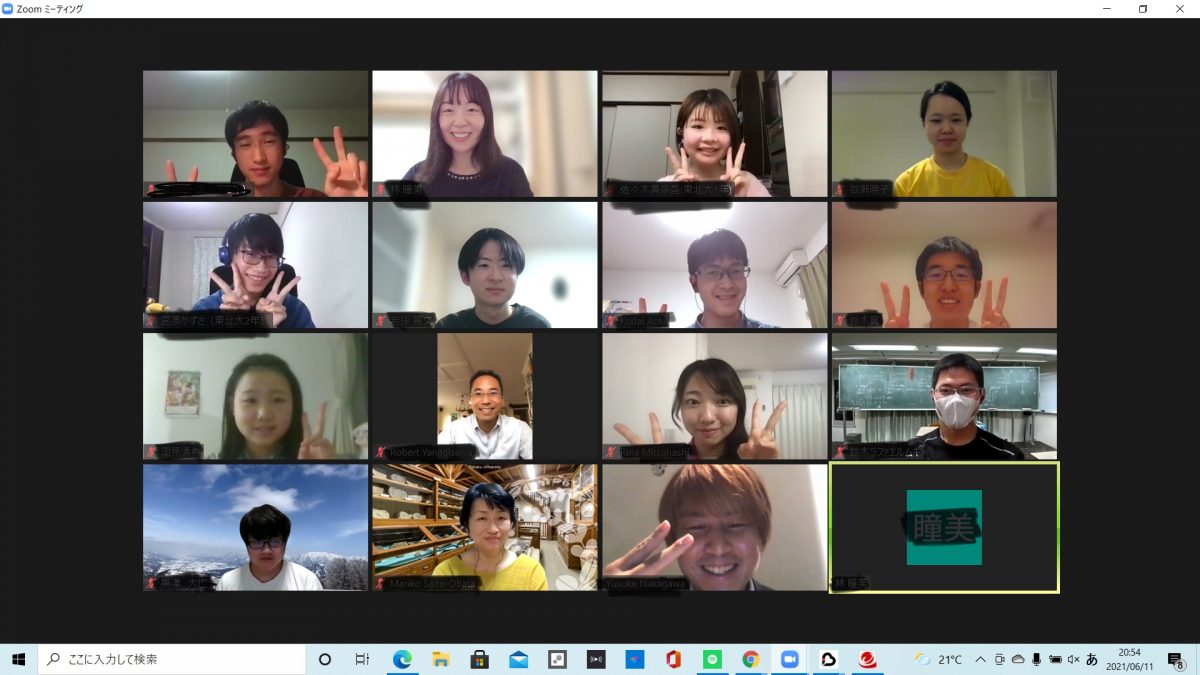
The final collaboration was Tokyo Medical Dental University. Dr. Takada, an alumnus of N Program and Professor at TMDU, introduced student representatives at Health Sciences Leadership Program, the program targeting global education and leadership. As the student representatives and their community have keen interests in international interactions and global leaderships, they warmly welcomed me to be a guest speaker. The students were eagerly motivated to discuss about my 4 questions I presented. On the actual session day, there held a 2-hour online session to actively talk about professionalisms and share universal challenges as medical students, surpassed scheduled 2-hour seminar!
As the session was adequately allocated in times, some discussions made positive imprints in our hearts, left positive impacts, and deeply resonated to our souls. For instance, we discussed: what are the advantages and disadvantages of having social and life experience prior to becoming medical students (non-traditional students) compared to students who become medical students straight from high school in Japan or college in the US (traditional students). Following that topic, we also had great conversations about what are the side effects of comparing oneself to another in medical school, concluding that do not envy what you have not and start embracing what you have and who you are. Moreover, start feeling excited about what you will have. In another great topic, we delved into student wellbeing and the importance of self-care during medical school and beyond that we sometimes need to open up our vulnerabilities to friends, classmates, mentors, and family members. Finally, we talked in depth about how we should start our own initiatives if the school does not provide adequate opportunities to connect with patients as well as opportunities in non-medical community services. I would like to insist that students always have potentials to push the boundaries and limits with the support of adults who have more social power and similar passion as I was able to get warm support from various terrific physicians including the JMSA president.
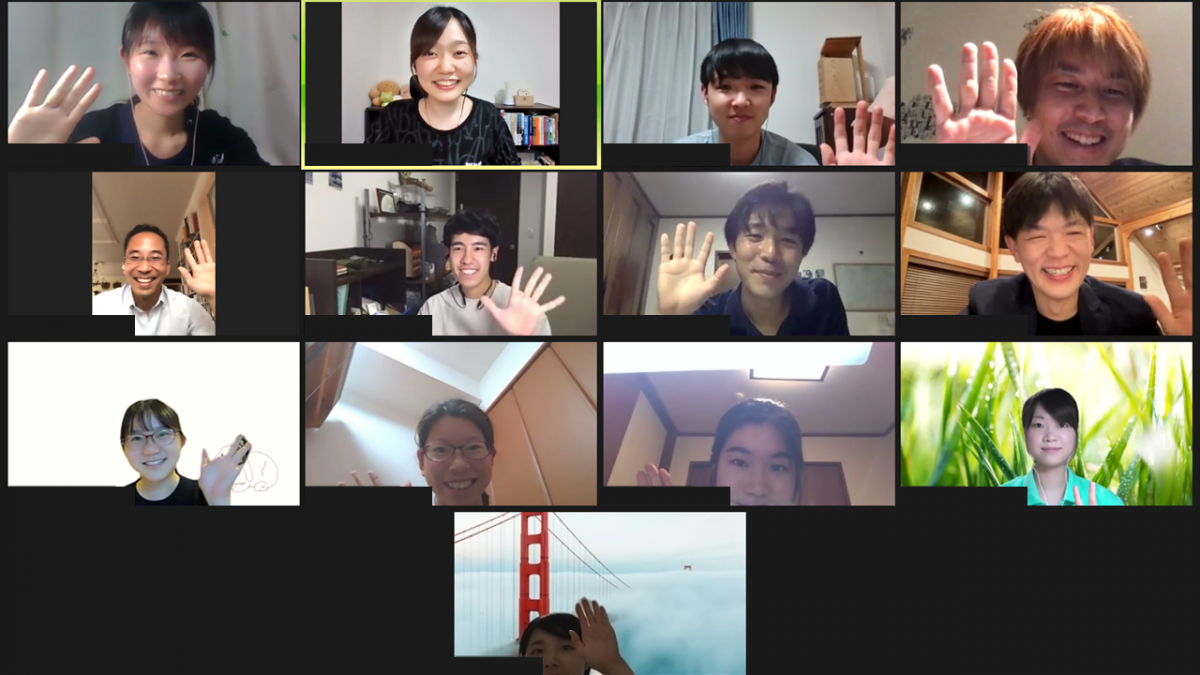
Overall, Dr. Yanagisawa was deeply impressed how participants were passionate and demonstrated active attitudes during the session, and I wholeheartedly enjoyed genuine discussions with fellow student doctors in Japan! We hope that we can meet again!
Lastly, I would like to say special thank you to all participants and organizers who make the sessions happen despite COVID-19. Once again, thank you to JMSA and Dr. Yanagisawa. 皆様へ心より感謝申し上げます。ありがとうございました。

